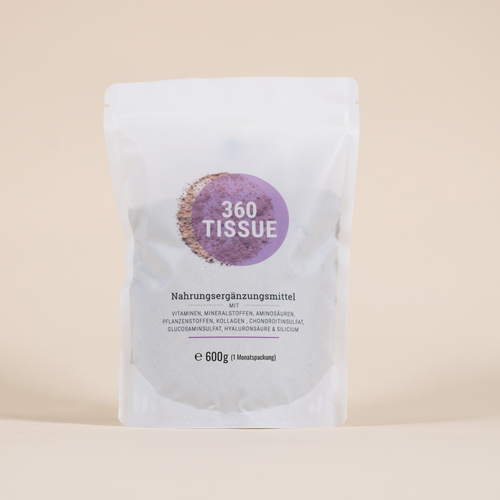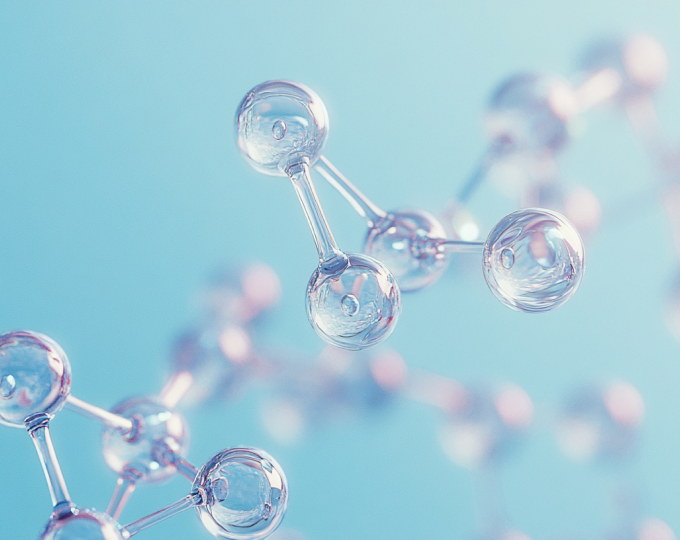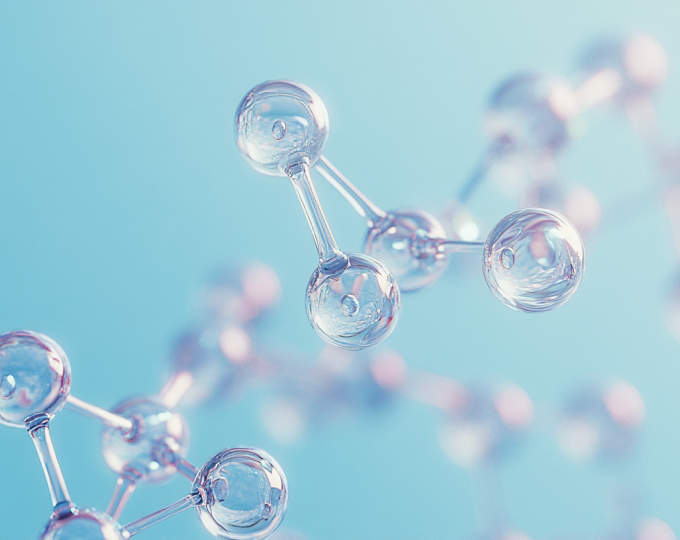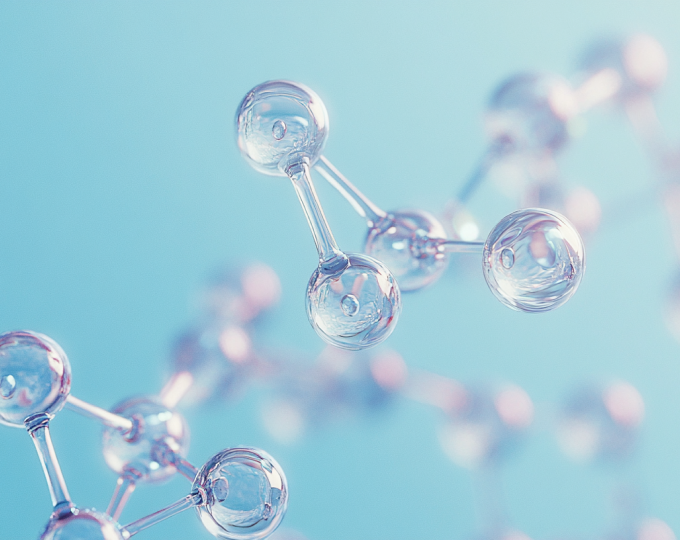Themen dieses Blogartikels:
What is Threonine?
Threonine is an essential amino acid, which means that it must be obtained from food. Threonine has a hydroxyl group (OH group) and therefore has special functions in amino acid metabolism.1
What are the functions of Threonine?
Threonine is proteinogenic and glucogenic. This means that it is required for the production of proteins. Threonine is also relevant for energy production by being introduced into the citrate cycle (glucogenic). Threonine is often used in protein synthesis for post-translational modifications, especially for O-glycosidic bonds and phosphorylation. O-glycosylation, for example, is relevant for the formation of glycoproteins, which are mainly found in cartilage and other connective tissue for elasticity. Mucins also contain many glycoproteins. Threonine is therefore also important for the normal formation of mucus for the protection of mucous membranes (stomach, intestines, throat, nose). Threonine is also important for antibody production.2
What makes Threonine unique?
The ability to phosphorylate proteins that contain threonine opens up regulatory possibilities.
How much Threonine do you need per day?
The German Nutrition Society (DGE) has not yet issued a recommendation for the intake of threonine. However, it is assumed that the daily requirement of an adult is around 6 mg to 16 mg threonine per kilogram of body weight4. Various factors such as age, gender and health status can influence the actual level of the nutrient requirement.
When do you need Threonine most?
During physical exertion, threonine is used to generate energy, among other things. Threonine is also particularly relevant for healthy joints and mucous membranes.3
How does an Threonine deficiency develop and how does it manifest itself?
A balanced diet with protein-rich foods covers the daily requirement of this essential amino acid well. People who suffer from eating disorders such as anorexia or bulimia can develop a deficiency. People whose nutrient absorption is impaired due to coeliac disease, Crohn's disease or short bowel syndrome may also be affected. In addition, vegetarians, vegans and older people should make sure they eat enough protein-rich foods to prevent a deficiency5. Possible deficiency symptoms can include flaky skin, muscle weakness and tiredness as well as fatty liver.6
What happens if there is an overdose of Threonine?
Small overdoses of threonine are generally harmless. If there is an extreme oversupply, the uric acid levels in the blood can rise sharply due to the rapid breakdown of this amino acid. This can trigger gout in those affected.7
Which foods are particularly high in Threonine?
Threonine is found in many protein-rich foods. Examples include beef, chicken, walnuts, wholemeal flour and peas. Here, threonine is almost 100% contained in the protein, but not free.
This dictionary entry is based on carefully researched sources:
Bibliography & Sources
- https://fet-ev.eu/proteine-aminosaeuren/
- https://www.vitalstoff-lexikon.de/Aminosaeuren/Threonin/funktionen
- https://www.naturundtherapie.at/images/Informationsblatter/Naturprodukte/infoblatt_threonin.pdf
- https://www.naturundtherapie.at/images/Informationsblatter/Naturprodukte/infoblatt_threonin.pdf
- https://www.vitalstoff-lexikon.de/Aminosaeuren/Threonin/Versorgungssituation
- https://infothek-gesundheit.de/threonin-funktion-effekt-bedarf-application/
- https://infothek-gesundheit.de/threonin-funktion-effekt-bedarf-application/




















